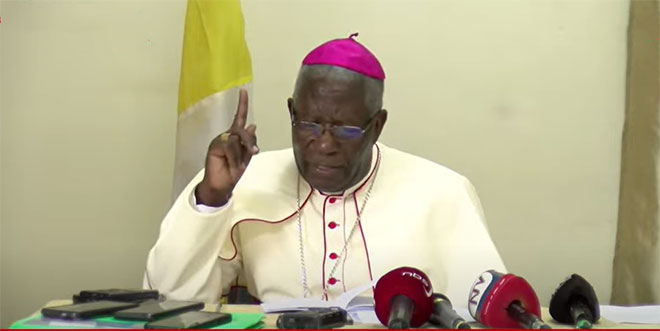Lot 1 of the Kampala flyover construction and road Upgrading Project is in advanced stages of completion with contruction progress at over 86% of completion.
In an attempt to reduce grid lock within the city of Kampala, the Japan International Cooperation Agency (JICA) commissioned a study in 2010 which was updated in 2013 and 2014 to examine available options for alleviating the chronic traffic jam in the Greater Kampala Metropolitan Area. This led to the Kampala Flyover Project which is being funded by JICA, a Japanese government body to a tune of US$ 82 million for lot 1 of the project. The whole project is budgeted at US$ 148 – 200 million.
The Government of Uganda under its road construction and maintenance body, Uganda National Roads Authority (UNRA) engaged Nippon Koei in a joint venture with Eighth Japan Engineering Company (EJEC) and the Infra Consulting Services limited (ICS) to carry out the detailed design and tender assistance of the Kampala Flyover Project and Shimizu-Konoike JV as the contractor of the project.
The project expected to improve traffic flow within the Greater Kampala Metropolitan Area by decongesting the Central Business District of Kampala through construction of the flyover, underpass, pedestrian bridges, road upgrading and improvement of junctions. This will help to improve the overall quality of transportation for residents which in turn supports economic growth and create a more liveable urban environment. The project also entails drainage construction and repair to reduce flooding around the clock tower, the former Shoprite area and Nsambya – Mukwano road and it is divided into two lots:
Lot 1 which costs covering the section from queens way to Entebbe Road/ Shoprite Junction, Nsambya Road, Ggaba Road up to Nsambya Hospital Junction, Mukwano Road including Kibuli Junction. The physical progress of the works on the Kampala Flyover Project lot 1 is now at 78.92%and completion is expected before the end of this year.
Lot 2 spans from the end of lot 1 along Mukwano Road up through access road, part of Yusuf Lule road to Garden City roundabout and part of Jinja Road up to Wampewo Avenue.
These are the key project components that are going to be included in the lots:
- Clock tower flyover – total length 584m (bridge 366m), 2 lane
- Shoprite pedestrian bridge – L =92m
- Clock tower pedestrian bridge – L = 239m
- Kibuli Pedestrian Bridge – L = 40m
- Nsambya Underpass – Length 360m
- New Clock Tower square
- Road widening improvements – total length – 3190m
- Junction improvements (Shoprite, Clock Tower, Nsambya Hospital and New Kibuli)
Materials used.
Various materials being used in the project like; concrete which is reinforced with steel to make sturdier support and durability of the road, steel which is used in form of beams, girders and reinforcement bars to provide necessary strength to withstand heavy loads and stresses, asphalt, aggregates which complement the asphalt to provide stability, strength and a skid resistant texture to the road, piling materials which are driven into the ground to support the foundation of the flyovers, waterproofing and sealants which protect bridge decks and road surfaces from water penetration that works to extend the life structure and street lighting fixtures that help in navigation during the nighttime.
Some of the realized benefits of the Kampala Flyover Project are as follows;
Capacity building and skills transfer.
According to UNRA, the flyover is employing over 530 people and these have received skills training from the foreign contractors and consultants. They made sure that for every project manager who was foreign, there was a Ugandan deputizing them. The road sector is one of the largest employers in the country, providing jobs for both skilled and unskilled workers. The construction and maintenance of roads require a wide range of skills including engineers, surveyors, drivers, mechanics, laborers and many others. Construction projects provide experience and invaluable training opportunities to their staff. UNRA thoughtfully provides training to its staff aimed at equipping them with skills and knowledge necessary to become job creators beyond the tenure with the organization.
Job opportunities.
Many of the construction materials were provided by local suppliers which increased the business activity. This was through participating in tenders for various project related contracts. Winning these tenders not only generated revenue but also provided valuable opportunities for capacity building and skill development. They were tasked with supplying materials like concrete, steel, asphalt, aggregate and even services like security all needed for the Kampala Flyover Project.
Challenges.
The international travel restrictions to curb the spread of the Covid -19 affected the timely return of all the Japanese project staff who were repatriated by their government on 3rd April 2020 and returned by September 2020
According to the UNRA Executive Director, Ms. Allen Kagina, there were some delays in construction of the flyover. The construction which had started in 2018 hit a stall in 2020 due to the covid-19 pandemic due to majority of the workers contracting the disease. Slow progress was made all through 2020 to 2021 due to the reduced man power. However after the ease of the lockdown and reduction in the cases of Covid-19 countrywide, the workforce was able to return to work in full health that Lot 1 of the Kampala Flyover Project is going to be complete by the end of the year.
Another challenge was the delay in arrival of the construction materials and plant equipment needed for the flyover project especially for structures like the underpass, pedestrian bridge and widening road networks. The contractors according to the Executive Director, the contractors faced challenges in importing materials into the country which delayed construction in the initial stages but they were provided an extension to complete the work to avoid hurrying through the work an producing results that are not up to standard.
There was also a challenge of land acquisition. Seeing as the construction process especially road widening requires the encroaching onto private individuals properties like land. There have been several disputes in settling the matters related to land. UNRA executive said they had 376 cases relating to land acquisition and majority of the cases had owners disputing the amount offered by the government as compensation. Ms. Kagina went on adding that 60% of the cases have been mediated through their in-house legal department which comprises of 22 advocates while the other 40% require litigation.
To conclude the Kampala Flyover and Road Upgrading Project stands as shining example of progressive urban development with its multitude of benefits. By reducing traffic congestion it will ease travel, lower carbon emissions and improve air quality contributing to healthier city. The incorporation for green infrastructure, storm-water management and energy efficient street lighting ensures ecological sustainability and preserves natural ecosystems. Additionally, the following the successful execution of the project the bilateral relations between Japan and Uganda will be strengthened, fostering a sense of partnership and cooperation between the two countries



